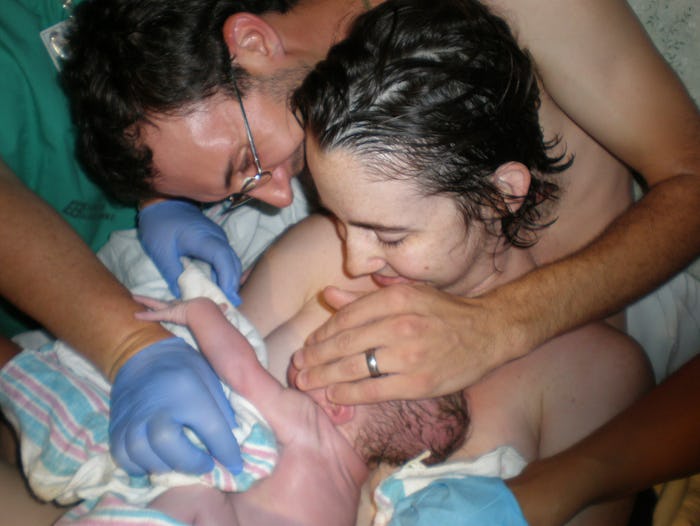Life
What’s A Doula? This Delivery Room All-Star Could Make Your Labor A Lot Easier
There are a myriad of options to consider when creating your dream birth plan. Where will you give birth? Who will be in the delivery room? Do you want an epidural? The list goes on and on.
One of the questions more and more moms have been asking is whether they want a doula to assist in the birth of their child. And, if this is the first time you’re seeing this word, you may be wondering what is a doula and why would you want one by your side as you give birth.
To offer some insight into the illusive, but amazing role of a doula, I spoke with Christine Strain, a well-respected doula herself, to get some “insider’s information” and better understand what a this delivery room all-star does.
“A doula is someone who provides physical, emotional, and informational support to women during pregnancy, labor, and birth,” Starin says. But if you ask me, she’s being modest, as the support of a doula is more in depth than it may seem at first glance.
Throughout the pregnancy, a doula, who is required to obtain certification before they can practice, acts as a sort of counselor. Strains says doulas are there to be an additional support system. “They answer the client’s questions as well as help them find additional sources of information,” she says. “They listen and provide emotional support through the pregnancy for any concerns, big or small.” Essentially, they are a go-to guide that will clear up any confusion and debunk and pregnancy myths.
When it comes time to deliver, your doula will be there too. Doulas work with the rest of your delivery team to make sure your needs are being met, and that you are comfortable and confident. Strain says she likes to help moms in labor with exercises that help increase the comfort and make the labor a little easier. Doulas also serve as a voice for the mom, who may be too focussed on contractions or too scared to speak up. “Doulas are there to remind them of things they had expressed a preference for and help them communicate with their care providers or hospital staff,” Strain says.
In addition to the long list of things a doula does, there are some tasks they aren’t allowed to handles. Strain makes it clear she will not make any decisions for her clients; she is simply there to help and support them. She also adds that doulas also do not offer medical care, such as checking vital signs, fetal heart tones, or vaginal exams.
At the end of the day, your doula wants to be there for you. For many, that’s the main reason they become doulas. In Strain’s case, it was a combination of wanted to help women and also be an advocate for non-traditional birth options. “I realized that there are so many options in birth, so much information to sort through and that birth care in the United States is not always evidence-based,” she says. Not to mention, there is nothing more rewarding than helping a woman through one of the most physically and psychologically daunting tasks of her life.
“It's always an honor to be asked into such a momentous occasion in someone's life, and to get to experience the start of a new life.”
So if you’re looking to strengthen you’re already strong support system, particularly with someone who knows how to help you through the delivery of your baby, then a doula may be for you.
